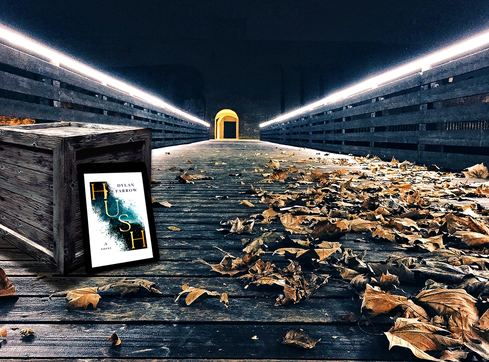You need to sign in or sign up before continuing.
Take a photo of a barcode or cover
1.5 stars
The idea was there but the execution needs major work. Very one dimensional, from the characters, to the settings, to the plot.
The plot was the largest question mark of it all. The central goal (The 'Book of Days') didn't even appear until over halfway through the book, its importance was not stressed at all. The main concept of bards who can conjure up 'Tellings' was barely explained, and despite being told countless times of our main character's immense power, we have no real gauge or comparison to understand her skill.
Not one character had any real depth or substance, the relationships were weak, the romance was random and bland. The author spend pages describing buildings and architecture, yet failed to successfully build a world in my mind. Every 'twist' was seen from a mile away, and every reveal was abrupt and had zero buildup or foreshadowing. Explanations for situations would conveniently pop up out of nowhere and from no prior background, especially towards the book's end.
The ending was not exciting in the least bit, and left many unanswered questions to be revealed in a sequel, which I have no intention nor desire to pursue. I felt absolutely nothing reading this. I really wish the author spent more time developing this story and using her flowery words where it mattered, because in the end the entire book fell flat.
The 1.5 stars are for the premise and for the fact that the author clearly has literary talent, but just needs to work on successfully bringing a story together. Overall, this one is a pass for me.
Thank you Netgalley for providing me with this ARC to review.
The idea was there but the execution needs major work. Very one dimensional, from the characters, to the settings, to the plot.
The plot was the largest question mark of it all. The central goal (The 'Book of Days') didn't even appear until over halfway through the book, its importance was not stressed at all. The main concept of bards who can conjure up 'Tellings' was barely explained, and despite being told countless times of our main character's immense power, we have no real gauge or comparison to understand her skill.
Not one character had any real depth or substance, the relationships were weak, the romance was random and bland. The author spend pages describing buildings and architecture, yet failed to successfully build a world in my mind. Every 'twist' was seen from a mile away, and every reveal was abrupt and had zero buildup or foreshadowing. Explanations for situations would conveniently pop up out of nowhere and from no prior background, especially towards the book's end.
The ending was not exciting in the least bit, and left many unanswered questions to be revealed in a sequel, which I have no intention nor desire to pursue. I felt absolutely nothing reading this. I really wish the author spent more time developing this story and using her flowery words where it mattered, because in the end the entire book fell flat.
The 1.5 stars are for the premise and for the fact that the author clearly has literary talent, but just needs to work on successfully bringing a story together. Overall, this one is a pass for me.
Thank you Netgalley for providing me with this ARC to review.
Hush is an absolutely stunning debut novel by Dylan Farrow. The world created is so well layered and intriguing that you cannot help but feel slightly sad and disappointed when the novel ends.
DNF’d. The magic/gaslighting analogy didn’t work for me
ARC provided via NetGalley in exchange for an honest review.
Rating: 4
I enjoyed this book and all its twists and turns. This is a really unique fantasy novel and I haven't really read one like it that I can recall. The world and locations are described with just the right amount of detail given. The characters are quite relatable and the plot seems well thought out every step of the way. I would recommend this book to anyone looking for an amazing YA fantasy!
Rating: 4
I enjoyed this book and all its twists and turns. This is a really unique fantasy novel and I haven't really read one like it that I can recall. The world and locations are described with just the right amount of detail given. The characters are quite relatable and the plot seems well thought out every step of the way. I would recommend this book to anyone looking for an amazing YA fantasy!
I was so excited for this book, and then was sorely disappointed. I liked to see the traces of Jim Henson's Labyrinth and The Dark Crystal, but I dislike the misogynist Hogwarts vibes. It's set up for a sequel/series. But I don't like it...The characters and the world are a little too shallow. It seems a bit like Harry Potter, where none of the worldbuilding took place until after the third book, when Rowling actually started working on the lore.
The rest of this review contains SPOILERS.
From the blurb, which stated that almost all Bards have been men, I assumed that was going to take a social exclusion route rather than biological determinism (Cathal says some brains shatter from the power)...Although he does add that madness tends to happen to the most powerful. "Female Bards are supposed to be the most volatile, vulnerable to our emotions and desires." Screams internalized misogyny and female exceptionalism. At the very end, it is revealed that this is a lie, but is there any explanation for the fewer numbers? Nope. (Also, it was stated that Bardness was not genetic, but random, so how does Shae inherit this from Ma?)
I just don't think this idea was developed enough, the differences between male and female Bards, especially. Nothing was really developed enough, except to establish that the Bards are like contemporary American police, corrupt and violently oppressive.
The utter absence of signed language and gesture is all the more apparent to me, as a deaf reader, during the scene in which Shae and Ravod laughably attempt to communicate through a window. It also doesn't make sense that they wouldn't develop gestures, since spoken language has such power, and the number of characters who don't/can't speak. It seems common enough that people would go, "Oh, hey, what if we invented a manual system of communication?" The phonocentrism is strong with this one.
I do like the unveiling of reality vs illusion facilitated through language. I just think the book would be improved if it weren't so phonocentric.
Shae has unlimited thread, somehow. Like, she's always sewing/embroidering and using thread like Theseus in the labyrinth. She never runs out of it, and she never gets more of it or replaces it.
One of the biggest cringes in this novel for me is the fact that the only female Black (or POC) character is presumably the villain, until the "plot twist" which shows she isn't.
The rest of this review contains SPOILERS.
From the blurb, which stated that almost all Bards have been men, I assumed that was going to take a social exclusion route rather than biological determinism (Cathal says some brains shatter from the power)...Although he does add that madness tends to happen to the most powerful. "Female Bards are supposed to be the most volatile, vulnerable to our emotions and desires." Screams internalized misogyny and female exceptionalism. At the very end, it is revealed that this is a lie, but is there any explanation for the fewer numbers? Nope. (Also, it was stated that Bardness was not genetic, but random, so how does Shae inherit this from Ma?)
I just don't think this idea was developed enough, the differences between male and female Bards, especially. Nothing was really developed enough, except to establish that the Bards are like contemporary American police, corrupt and violently oppressive.
The utter absence of signed language and gesture is all the more apparent to me, as a deaf reader, during the scene in which Shae and Ravod laughably attempt to communicate through a window. It also doesn't make sense that they wouldn't develop gestures, since spoken language has such power, and the number of characters who don't/can't speak. It seems common enough that people would go, "Oh, hey, what if we invented a manual system of communication?" The phonocentrism is strong with this one.
I do like the unveiling of reality vs illusion facilitated through language. I just think the book would be improved if it weren't so phonocentric.
Shae has unlimited thread, somehow. Like, she's always sewing/embroidering and using thread like Theseus in the labyrinth. She never runs out of it, and she never gets more of it or replaces it.
One of the biggest cringes in this novel for me is the fact that the only female Black (or POC) character is presumably the villain, until the "plot twist" which shows she isn't.
Dylan Farrow has delivered us a strong fantasy debut.
I love the concept of this book -- of 'the blot' being an illness of ink, of any writing being banned. It's spreading rapidly through the land where Shae, our heroine, lives and after losing family members, she decides to set out on her own to find a solution. That solution comes in the form of 'the Bards', a group of magic wielders that have the ability to alter reality.
It was interesting from the very beginning, but Farrow looses me a bit when it comes to world building. There's not much explanation for anything. I would've really loved to learn more about the Bards magic, where it comes from and the history behind it. The whole magic-system in the book could've used a bit more love, really.
The plot was attention grabbing, if a little clumsy. Again, the world-building would've helped the narrative. I know this was being marketed as a feminist fantasy, but I didn't really get the feminist aspect of it. I would've loved to see more female characters in this book that helped Shae and formed bonds.
Overall, I think Farrow has a lot of talent, and I can't wait to see what's next once that talent is honed.
I love the concept of this book -- of 'the blot' being an illness of ink, of any writing being banned. It's spreading rapidly through the land where Shae, our heroine, lives and after losing family members, she decides to set out on her own to find a solution. That solution comes in the form of 'the Bards', a group of magic wielders that have the ability to alter reality.
It was interesting from the very beginning, but Farrow looses me a bit when it comes to world building. There's not much explanation for anything. I would've really loved to learn more about the Bards magic, where it comes from and the history behind it. The whole magic-system in the book could've used a bit more love, really.
The plot was attention grabbing, if a little clumsy. Again, the world-building would've helped the narrative. I know this was being marketed as a feminist fantasy, but I didn't really get the feminist aspect of it. I would've loved to see more female characters in this book that helped Shae and formed bonds.
Overall, I think Farrow has a lot of talent, and I can't wait to see what's next once that talent is honed.
*I Received this one from netgallery*
I really like learning about the disease very interesting.
It feel like the book was all over the place and but I like the world building. Its like nothing really happen until the end of the book and at that point I was really rushing to get to the end of the book. I didn't like how Shae was just trusting any and everybody
I really like learning about the disease very interesting.
It feel like the book was all over the place and but I like the world building. Its like nothing really happen until the end of the book and at that point I was really rushing to get to the end of the book. I didn't like how Shae was just trusting any and everybody
I received a copy of this from NetGalley in return for an honest review.
This book was definitely not what I thought it would be. In a very good way. I thought this book was going to take place in present day, but it took place in a totally different world. It follows Shae, a girl from the poorest village in her country, whose entire family has been killed in some way or another. She travels to the center of her country to get answers from the people that are supposed to protect everyone.
I really liked the worldbuilding in this book. I was immediately drawn into the dark, gloomy world of Shae's village. It really did feel the desperation of the people that lived there. I also liked the characters in this book. Shae was a tad bit annoying at times, and had a singular focus throughout the book. I like when the MC has a mission that they want to complete, but I felt that Shae made some bad decisions to get there.
The side characters were also fairly interesting, although I thought they fell into some stereotypes. You had the "enemies to love interest", the "best friend who had a falling out", the "crush", the "mentor", and the "bitchy girl who turns out not to be evil". They just sort of felt one dimentional compared to what I thought they would be.
Overall, this was a pretty good start to a promising series. While the ending did feel somewhat not wrapped up, it was definitely set up for a sequel to start right where this one left off.
This book was definitely not what I thought it would be. In a very good way. I thought this book was going to take place in present day, but it took place in a totally different world. It follows Shae, a girl from the poorest village in her country, whose entire family has been killed in some way or another. She travels to the center of her country to get answers from the people that are supposed to protect everyone.
I really liked the worldbuilding in this book. I was immediately drawn into the dark, gloomy world of Shae's village. It really did feel the desperation of the people that lived there. I also liked the characters in this book. Shae was a tad bit annoying at times, and had a singular focus throughout the book. I like when the MC has a mission that they want to complete, but I felt that Shae made some bad decisions to get there.
The side characters were also fairly interesting, although I thought they fell into some stereotypes. You had the "enemies to love interest", the "best friend who had a falling out", the "crush", the "mentor", and the "bitchy girl who turns out not to be evil". They just sort of felt one dimentional compared to what I thought they would be.
Overall, this was a pretty good start to a promising series. While the ending did feel somewhat not wrapped up, it was definitely set up for a sequel to start right where this one left off.

ARC provided by Wednesday Books/St. Martin's Press and Dylan Farrow via NetGalley. All opinions are mine and freely given.
Blog | Instagram | Twitter | Facebook | BookBub
09-12: 'Hush' by Dylan Farrow was another of my most highly anticipated reads for 2020.. and it absolutely exceeded my expectations.
Shae, our main character, is a girl of seventeen who lives a quiet life in the small village of Aster with her mom.. the last living member of her family. Terrified of the plague that killed her baby brother, she lives in constant fear that she's cursed.. a fear that's reflected back at her by most of the townspeople.
Treated as an outcast, the only friends she has are Fiona and Mads.. both of whom do their best to make her life a little better.. but there are rules with harsh punishments enforced by a group called the Bards. These justice bearers come dressed all in black and gold, claiming to use the magic of Telling to keep the people safe.. so long as they provide appropriate tithes.
When she finds her murdered mother's body, the discovery exacerbates everything. All her fears and those of the community.. come down hard around her.. and that's where her journey begins.
This is one of those extremely rare instances where the synopsis not only leaves the best parts of the story out.. as well it should.. it even leaves out some of the most intriguing aspects told in the very first pages. It's actually kind of mind-blowing.. how bland the blurb is when compared to even the opening of the tale.. and it only gets better from there.
The brooding Bard with secrets of his own has an absolutely magnetic pull and I desperately hope there will be another book so I can learn more about him. Everything seems to imply there will be considering the way it wraps up.. but I've seen no confirmation anywhere yet.
It is the repository of all truth, brought to our land by the First Rider. In its pages is the record of everything we know. The fabric upon which all reality is shaped."
As for the magic system, I loved how the importance of balance was displayed and how it seemed to work. Especially good was the play between illusion and magic grounded in reality. It created a sense of uncertainty, not only for Shae.. but a bit for the reader at times, so that one might wonder which way things would go.
Through it all runs an important message that the author alludes to in her acknowledgements. The importance of speaking out, the strength it often takes to do so.. when those around you seem aligned against you, and the celebration of those who do so anyway. It's certainly a position Farrow knows personally and I think that showed in the conviction and sometimes wavering bouts of despair that Shae struggled with.
I found the setting nearly as fascinating as the story itself. Shae's home village is described so cleanly, I feel like I can see it.. and the castle.. wow. It's a vast fortress of training grounds and corridors, a hidden maze, and a multitude of dangers.
If I was looking for something to improve on.. I'd say the dialogue could be better.. but that's not to say it's bad either. The conversations feel a little contrived at times, but there's definitely better dialogue chemistry once she reaches the home of the Bards.
Anyway, this book was fantastic! I highly recommend it to anyone looking for a wonderfully creative fantasy read.
PURCHASE LINKS: AMAZON | BARNES & NOBLE | BOOK DEPOSITORY | BOOKSAMILLION | GOOGLEPLAY BOOKS | INDIGO | KOBO








